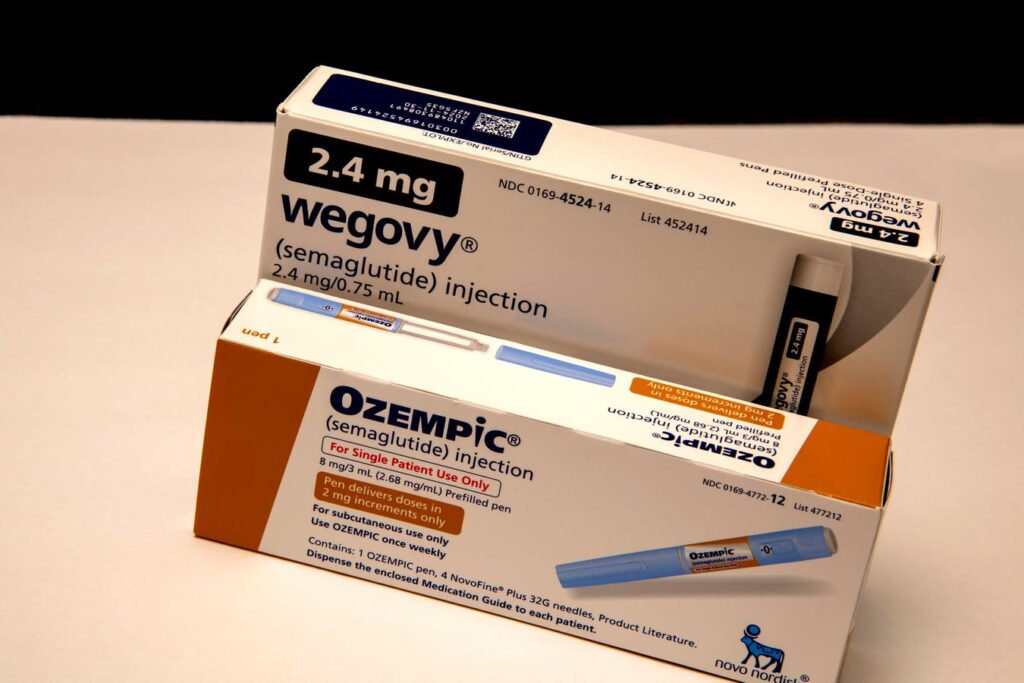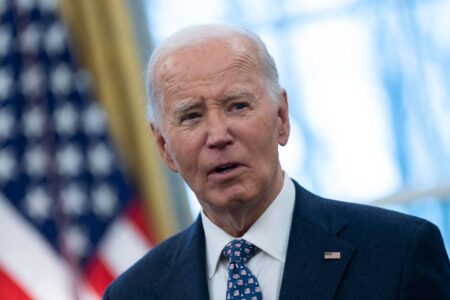President-elect Donald Trump prides himself on making deals. Here is one for him: Keep Joe Biden’s commitment to have Medicare pay for GLP-1 drugs such as Ozempic and Wegovy for weight loss. But only if the drugmakers agree to substantially reduce their prices right away.
Such a move would be fraught for Trump and his Republican allies on multiple levels. But it presents the incoming president with a major political opportunity as well as some significant challenges. And not doing the deal brings its own risks.
The Backstory
While Medicare pays for the GLP-1 drugs for people with Type-2 diabetes and some forms of heart disease, it has been barred by an old federal law from paying for weight-loss drugs. But last November President Biden proposed new rules to allow Medicare and Medicaid to pay for these meds. The change would not become final until after Trump is inaugurated, dropping the issue squarely in his lap.
Over the past few years, these drugs have been used effectively to help people lose weight and become extremely popular. But they also are very expensive. Ozempic costs more than $900-a-month. Zepbound can cost as much as $1,100 for four weekly doses. The list price for Wegovy is $1,300.
All the drugmakers offer discounts for consumers. But not for Medicare. And there is plenty of room to negotiate. The research group KFF estimated that in 2023, the list price for Ozempic was $936 in the US but $147 in Canada and $83 in France.
And that’s where it gets interesting.
In 2022, the Democratic Congress, pushed by the Biden Administration, permitted Medicare for the first time to negotiate prices with drugmakers. But the authority was limited only to 10 high-cost drugs at first, with the lower prices beginning in 2026. A few more drugs will be subject to negotiations each year through 2030.
What Happens Next?
The next round may include drugs such as Ozempic and Wegovy with the active ingredient semaglutide, manufactured by Novo Nordisk. The government must announce by February 1 which drugs will be subject to the next round of negotiations. But those prices would not fall until 2027.
And that’s the opportunity for Trump. Imagine he tells the drug companies he’ll approve Medicare and Medicaid payment for these weight loss drugs, but only if they agree to reduce their prices immediately.
Such a step might be broadly popular and given how it would open the market, the drug makers are likely to make the deal. And Trump would leave himself open to Democratic criticism if he doesn’t let Medicare and Medicaid pay for the drugs. But taking that step in trade for lower prices would run into several bumps in the road.
GOP Divisions
To start, Trump himself has been all over the lot on the issue of government drug price negotiations. He backed the idea when he first ran for president in 2016. But once in office he never followed through. And he said little about the issue during his 2024 race.
Before the recent election, congressional Republicans vowed to repeal the 2022 price negotiation bill, not surprising since they overwhelmingly opposed it when it was being debated. Project 2025, the conservative manifesto written by many key Trump allies, also would repeal the drug negotiation program.
Then, there are the disagreements among Trump’s nominees for top administration jobs. For example, his choice to head the Department of Health and Human Services, Robert F. Kennedy Jr., has been sharply critical of anti-obesity drugs, arguing that people should lose weight by eating healthier food and exercising.
But Trump’s pick to run the Centers for Medicare and Medicaid Services, Dr. Mehmet Oz, has actively promoted the drugs. In theory, at least, Oz would work for Kennedy.
The fate of Medicare payments also would run into Trump world’s internal conflicts over cutting federal spending. The Congressional Budget Office estimates that paying for these drugs for weight loss at current prices could cost Medicare as much as $40 billion over the next decade. If the government convinces the companies to reduce the price, it would lower the per dose cost but boost demand. CBO estimates that nearly 70% of Medicare recipients are either overweight or obese.
Trump’s Choice
Some argue that by increasing access to the drugs, Medicare and Medicaid would save money in the long run, since reducing obesity could lower costs for treating heart disease and other conditions. But so far, at least, that cost savings largely has been illusory. CBO projects that improved health would reduce Medicare’s net cost of paying for the drugs by only about 10%.
And there are side effects to these meds and real questions about how long patients are willing to stick with them. The drugs currently must be self-injected, a practice many find unpleasant. And some patients stop taking them once they hit a weight target, which can limit any long-term benefits.
It all leaves Trump with a fascinating choice: Does he let Medicare pay for anti-obesity drugs at lower cost and increase access for many voters. Or does he worry about the long-term budget impact and appearing to embrace an idea proposed by his predecessor? My bet: He’ll make the deal.
Read the full article here
















